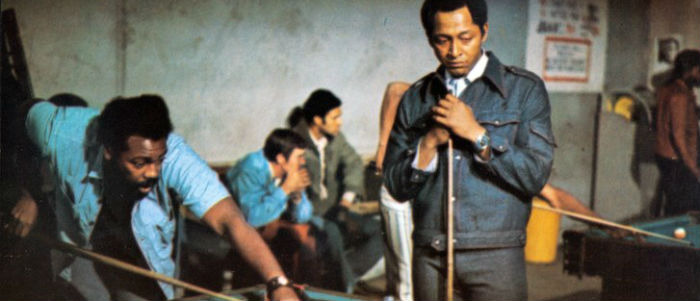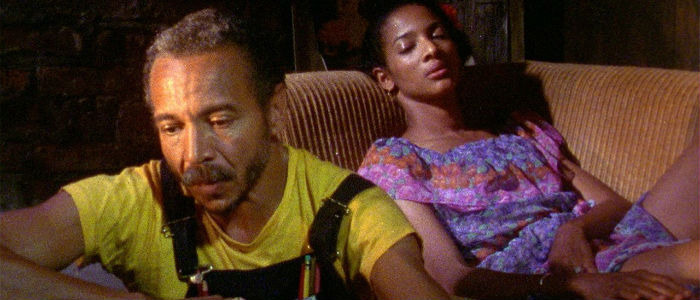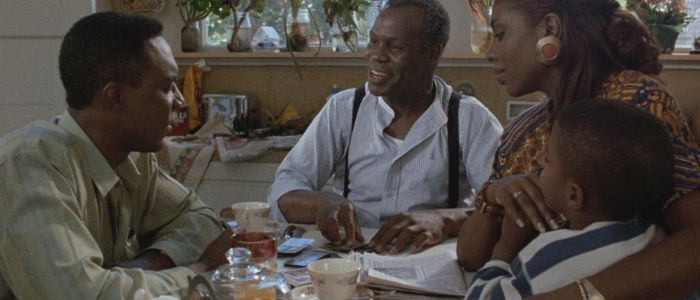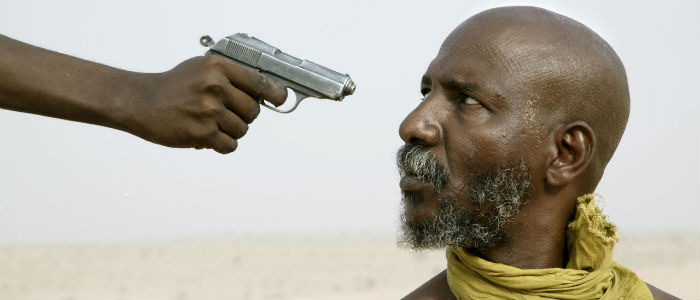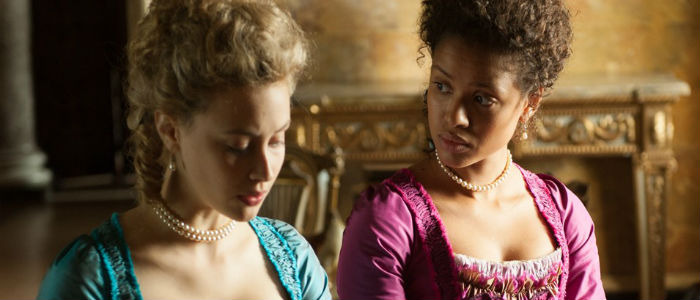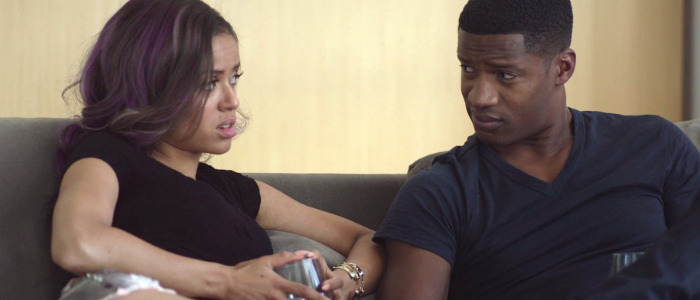The Best Movies You've Never Seen From Black Directors
(Welcome to The Best Movies You've Never Seen, a series that takes a look at slightly more obscure, under-the-radar, or simply under-appreciated movies. This week we give a nod towards Black History Month with a look at some of the best, little-seen films from black filmmakers.)
Great films and filmmakers are worth celebrating all year round, but we live in a world that likes to categorize and quantify, meaning February has been designated as Black History Month (and Women in Horror month too for those of you keeping track). The films in this column are recommended viewing any time, but I'm willing to play along with the convention if it gets more eyeballs on the smart, engaging, and entertaining cinema these directors have to offer.
Black filmmakers are continuing to increase in number and prominence alongside Asian, Latino, and female directors, and cinema is richer for it. More voices mean more stories, and that can only be a good thing. Films like Do the Right Thing (1989) and Eve's Bayou (1997) broke barriers and demand to be sought out, while the new documentary Horror Noire (2019) explores the world of black horror films in ways that fascinate, enlighten, and entertain. The six films below haven't reached the same level of awareness, but they most definitely deserve more than they've received.
Keep reading for a look at some of the best films you've probably never seen from black directors.
The Spook Who Sat By the Door (1973)
Under stress and pressure from outside observation and criticism, the C.I.A. opens its doors to welcome African American recruits for the first time. The idea is that none of them will make it through the training leaving the agency able to claim that at least they tried, but one black man graduates with flying colors. He has his own agenda, though, and after years of playing nice, he leaves to start a training program of his own.
There are some humorous beats here as the film pokes fun at the deluded, racist mindsets of the white men running the C.I.A., but the main throughline of the narrative is very serious. The film's antihero — not so subtly named Dan Freeman — plays it calm, obedient, and patient before putting his plan into motion training black resistance fighters in guerilla warfare tactics for their fight against the racist authorities. Small skirmishes build towards an all-out war in Chicago, and it's a story that manages to thrill and challenge in equal measure.
Few genre films lean as subversive as this action/drama from the early 70s, and it paid the price for years by being shelved, buried, and otherwise hidden from view. Director Ivan Dixon, best known for his role on Hogan's Heroes (1965-1970), had a long career directing for television but made his most memorable mark with this adaptation of Sam Greenlee's angry novel. It feels dated today in only the most superficial ways and instead seems every bit as relevant as it was upon release. To that end, the novel was optioned again in 2018 by Tyler Perry with plans to bring it to television as a series, and while I'd still rather get a sequel that might be just as satisfying.
Losing Ground (1982)
A college professor and her artist husband leave the city behind for a small town vacation, but rather than bring them closer it pushes them further apart. He finds female interest elsewhere, she finds someone more challenging back in the city, and angry questions lead to angrier answers.
There's a definite rawness to this low budget drama, but its mere existence trumps some of its surface inadequacies. These characters in this kind of story were previously unheard of, and while the artist's dalliances are expected the female professor's growing independence and self-interests surprise and energize the narrative. As groundbreaking as a black female lead is the character's profession stands out even more — she's allowed to express her intelligence as a teacher while still being able to grow as a woman. She relaxes, trusts herself, and finds a strength she didn't know she needed. The actors behind the men in her life add weight to the film's place in black cinema history as Bill Gunn directed 1973's Ganja & Hess and Duane Jones starred in Night of the Living Dead (1968).
Writer/director Kathleen Collins' film was not only one of the first — if not the very first — features directed by a black woman, but it was also, unfortunately, her very last. It was filmed on a shoestring budget in 1982, earned some minor acclaim on the festival circuit, and then disappeared from view. Collins passed away in 1988, but her daughter Nina salvaged the original 16mm negative and together with an interested, forward-thinking label (Milestone Film & Video) the film was restored and released on DVD.
To Sleep With Anger (1990)
Gideon and his wife Suzie are a working-class couple in Los Angeles with a son who continually seems one step removed from real trouble. Their other son adds to the occasionally conflicting dynamic as well, but it's the arrival of an old family friend that sends them all into an increasingly fractured spiral.
There are a casual tone and pace to this drama that gives the family time to earn viewers' affection and interest while the plot slowly builds around them. They're transplants from the South who've made the bustling city their home, and like any family, they want stability both financially and emotionally. Danny Glover's arrival touches a live wire to their lives that tests their limits of hospitality while challenging the ways in which they've changed and grown in the city they call home — which in no way resembles the South they've all left behind.
Charles Burnett found critical acclaim with his feature debut Killer of Sheep (1978), but his third film as writer/director feels every bit as relevant while succeeding better on the accessibility front. This is a warmly realistic family, and while there's humor in some of their interactions it's the growing unease that takes center stage. Glover's character is a troublemaker, but it's not immediately clear if it's built on loneliness or maliciousness. He rattles them either way, and the resiliency that has brought the family this far is forced to stand up to this new challenge in dramatic ways. The film manages to be both a general look at familial traditions/behaviors and a specific one about the additional challenges often faced by black families climbing the same ladders.
Dry Season (2006)
A civil war in the country of Chad has come to an end, and the government has given amnesty to all war criminals as a step towards reconciliation and the future. A teenaged boy hears the news, but instead of seeing a peaceful tomorrow he chooses a violent one as he sets out on a journey of revenge to kill the man who murdered his father many years ago.
Revenge is a familiar theme on the big screen with tales of vengeance being popular in acclaimed films (The Limey, 1999), populist movies (Gladiator, 2000), and exploitative gems (Rolling Thunder, 1977), and this feature falls into the small subgroup among them about kids seeking revenge over a parent. Young Atim is driven as much by his grandfather's demand for vengeance as he is by his own anger and frustration over having never known his father. He's instead known only a landscape at war, and as he maneuvers closer to his prey he discovers a man far removed from the violence that binds them together. It sets the stage beautifully for tension, catharsis, and the ever-spinning wheel of tragedy.
Writer/director Mahamet-Saleh Haroun captures the atmosphere and anxiety of a country and people all too familiar with violence, and the intimacy in his visuals serve as a reminder that this country is his own. The film feels at times as if it's borrowing from Western genre films in its story and suspense beats, but the specifics — these characters, this locale — leave it feeling like its own creation. It's ultimately a suspenseful film, but its power comes mostly through its look at people trying to pick themselves up and move forward after years of violence and loss.
Belle (2013)
Dido Belle is the mixed-race daughter of a slave woman and a British Admiral, and after her mother's death she's moved to England and raised as a free woman of privilege. Her father's death leaves her with a generous annual stipend, but her race still leaves her with numerous challenges when it comes to relationships, love, and marriage.
This is a very attractive period piece brought to life through strong production design and cinematography, an extremely talented cast — Gug Mbatha-Raw, Matthew Goode, Emily Watson, Tom Wilkinson, Sarah Gadon, and more — and a fascinating story. The film's based in fact, and while it plays loose with some details it scratches an itch you may not have known you had in offering a look at a black character in an 18th-century setting who isn't a slave or servant of some kind.
The film is the creation of two black female filmmakers — director Amma Asante and writer Misan Sagay — and it serves as a reminder as to why all kinds of voices are so damn important. They've crafted an entertaining and engaging film, but it took their perspective to bring this centuries-old true story to the screen. Belle's life is paired with a dramatization of a real-life court case that influenced 1807's Abolition of the Slave Trade Act, and while her journey stands apart from it in many ways her connection to it adds weight to the costume drama.
Beyond the Lights (2014)
Noni is a singer on the rise, but the combined pressures of fame, her overbearing mother, and an industry built on sex appeal takes its toll. A moment of weakness sees her contemplate suicide, but a stranger steps up to save her. She's a troubled star, he's a street cop with political aspirations, and they might just be the best things in each other's lives.
Yes, I'm well aware that I've picked two films starring the effortlessly talented Gugu Mbatha-Raw in a lead role, but you'll get no apology from me. She's stunning here as a young woman who's alternately fragile, sexy, and strong, and you believe her quiet moments as easily as you do her performances on stage before cheering crowds. Nate Parker is equally consistent as the man pulled in varied directions that always bring him back to her, and while the plot engages well it's their growing love story that seals the deal. It's not a film that tries to break molds, but it captivates in rewatchable ways all the same.
Writer/director Gina Prince-Bythewood crafts a story that feels both familiar — think a little Notting Hill (1999) with a dash of The Bodyguard (1992) — and fresh in its tale of redemption and love. Race plays a role here, but Noni's struggle as a female star rings equally true and relevant. We first meet her in a label-orchestrated relationship with a white rapper, her photoshoots lean heavily towards sexualizing her, and her career-minded mom approves of it all. The price of success, both for a star and a budding politician, is revealed as higher than some of us might consider paying.

